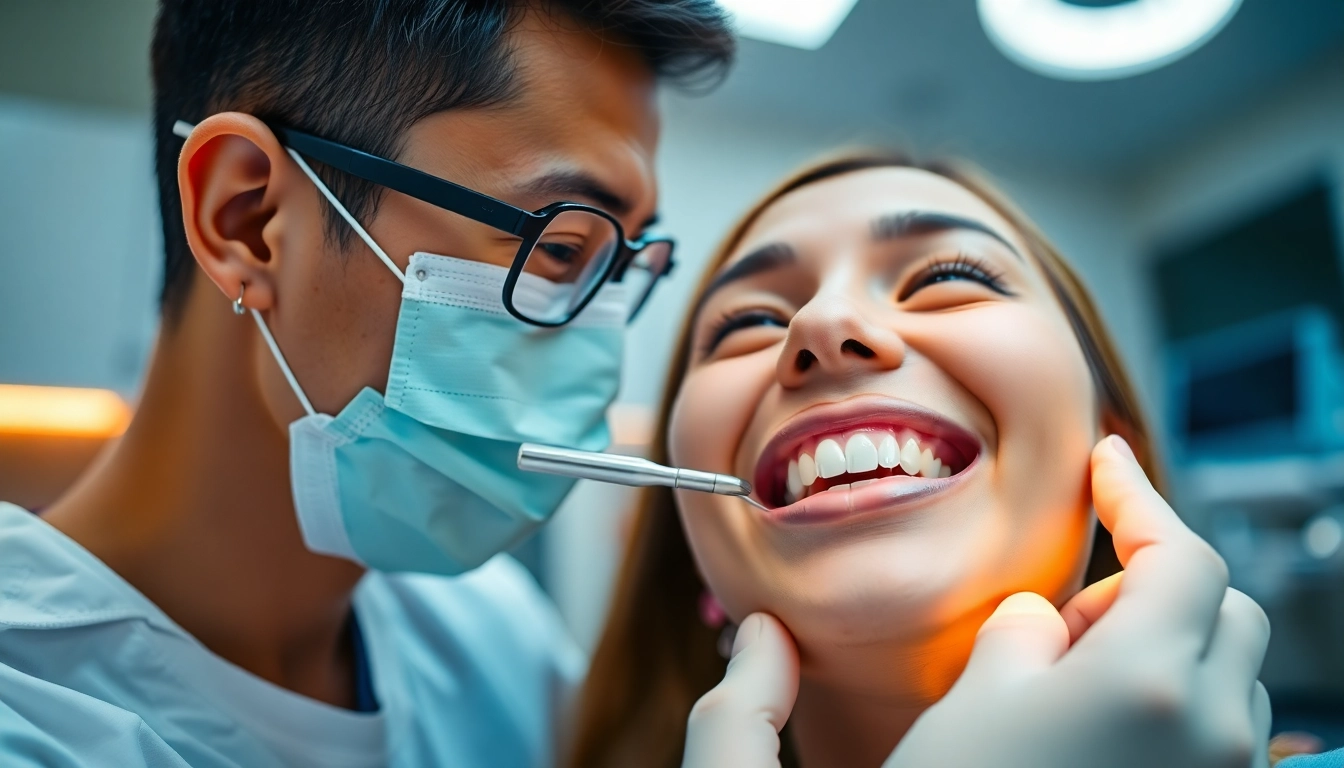Effective Rehabilitation Center in Kyiv Specializing in Addiction Treatment and Recovery
Understanding the Role of a Rehabilitation Center in Addiction Recovery
What Is a Rehabilitation Center and How Does It Help?
A rehabilitation center is a specialized healthcare facility dedicated to helping individuals overcome substance dependencies such as drugs, alcohol, or behavioral addictions. These centers serve as comprehensive environments that combine medical, psychological, and social interventions aimed at guiding patients from active addiction toward a sober, functional, and satisfying life.
The core purpose of an addiction rehabilitation center is to facilitate detoxification, provide therapeutic interventions, and develop personalized recovery plans. This multi-layered approach ensures not only the physical cessation of substance use but also addresses the underlying psychological and behavioral issues that contribute to addiction. Moreover, reputable centers also prepare individuals for social reintegration, minimizing the risk of relapse. Their role is pivotal in reducing addiction-related health complications and societal costs, making them an essential component of public health strategies.
Key Features of a Leading Ukrainian Rehabilitation Center
A top-tier rehabilitation center in Ukraine, such as the renowned Rehabilitation Center «Троицкий» in Kyiv, distinguishes itself through a set of core features designed for efficacy and comfort. These features include:
- Multidisciplinary Team: Comprised of experienced psychologists, psychiatrists, narcologists, nutritionists, and social workers who collaboratively tailor treatment plans.
- Evidence-Based Methods: Implementation of internationally recognized treatment protocols, including the Minnesota model’s 12-step approach, cognitive-behavioral therapy (CBT), and motivational interviewing.
- Individual and Group Therapy: Combining personalized therapy sessions with group sharing to foster peer support and accountability.
- Comfortable Environment: A tranquil setting surrounded by natural greenery, designed to promote relaxation and mental clarity during recovery.
- Holistic Care: Incorporating activities such as physical exercises, art therapy, and relaxation techniques to support holistic well-being.
Such centers also emphasize confidentiality, respect for patient dignity, and a non-judgmental attitude that helps clients feel safe and motivated to engage fully in their recovery process.
Difference Between Outpatient and Inpatient Programs
When considering treatment options, potential patients often face the choice between outpatient and inpatient programs. Understanding the differences is crucial for selecting the appropriate path.
Outpatient Programs
Outpatient treatment allows individuals to live at home while attending scheduled therapy sessions at the center. This form suits those with mild to moderate dependencies, stable living conditions, and strong family support. It provides flexibility for clients to continue working or studying, though it may involve less intensive supervision.
Inpatient Programs
In contrast, inpatient or residential programs require clients to reside at the center for the duration of treatment. This approach is ideal for severe addictions, cases with co-occurring mental health disorders, or when a controlled environment is essential. It ensures continuous supervision, immediate medical support, and a distraction-free environment conducive to deep recovery.
Leading centers in Ukraine, including Rehabilitation Center «Троицкий», typically offer both options, allowing personalized choices based on the patient’s needs.
Comprehensive Treatments and Approaches at the Rehabilitation Center
Integrated Programs for Alcohol and Drug Dependencies
Modern rehabilitation hinges on the integration of multiple treatment modalities, tailored to the individual’s particular dependency profile. At centers like «Троицкий», therapies coordinate medical detoxification, psychological support, and social adaptation strategies.
The detox phase involves supervised medical assistance to manage withdrawal symptoms safely. Post-detox, patients undergo therapies targeting psychological underpinnings such as trauma, emotional regulation, and behavioral patterns that perpetuate substance use.
The Use of 12-Step Methodologies in Rehabilitation
One of the foundation approaches employed is the Minnesota 12-Step Program. This peer-supported, spiritual-influenced model encourages self-awareness, acceptance, and ongoing recovery efforts. The program fosters community support, accountability, and spiritual growth, which are proven to significantly reduce relapse rates. Since its implementation, thousands of dependents in Ukraine and globally have benefitted from this approach.
Holistic Care: Therapy, Nutrition, and Aftercare
Effective rehabilitation extends beyond medical and psychological treatments. It incorporates holistic elements such as proper nutrition, physical activity, mindfulness practices, and social skills development. Nutritionists within centers ensure that patients receive balanced diets, accelerating healing and improving psychological resilience. Additionally, aftercare programs encompass outpatient support, relapse prevention plans, and ongoing counseling, vital for maintaining sobriety over the long term.
Step-by-Step Process of Recovery in a Rehabilitation Center
Initial Assessment and Personalized Treatment Planning
Every recovery journey begins with a detailed assessment of the patient’s physical health, mental state, addiction severity, and social environment. These evaluations lead to a bespoke treatment plan, emphasizing individual strengths and challenges. Experienced professionals utilize diagnostic tools and interviews to craft an effective roadmap.
Detoxification and Medical Support
The detox phase is often the initial Critical step, especially for severe dependencies. Under medical supervision, withdrawal symptoms like tremors, hallucinations, or seizures are managed with medication and supportive care. This process typically lasts from several days to a couple of weeks, depending on the substance and dependency level.
Rehabilitation Phases and Reintegration Strategies
Following detox, patients enter active rehab. This phase emphasizes therapy, life skills training, and relapse prevention. Group therapy, individual counseling, and family involvement constitute crucial elements. As patients stabilize, focus shifts toward social reintegration, employment readiness, and continued support, ensuring a sustainable sober lifestyle.
Advantages of Choosing Our Rehabilitation Center in Kyiv
Peaceful Environment and Natural Surroundings
The physical setting of your rehabilitation significantly impacts recovery success. «Троицкий» boasts a serene, green environment, designed to foster recovery by reducing stress and promoting clarity. The natural surroundings facilitate outdoor activities and relaxation, proven to enhance mental health and resilience.
Experienced Multidisciplinary Team and Proven Methods
With over 14 years of experience, our team employs validated, evidence-based protocols that are continually refined through current research and international best practices. Our multidisciplinary approach ensures comprehensive care addressing all aspects—medical, psychological, social, and spiritual.
Ongoing Support and Post-Rehabilitation Follow-Up
Completion of primary treatment does not mark the end of recovery. We offer structured aftercare, including outpatient counseling, peer support groups, and relapse prevention strategies. These ongoing services are essential for sustaining long-term sobriety and restoring social functioning.
Measuring Success and Long-Term Sobriety
Monitoring Progress and Adjusting Treatments
Regular assessments during and after treatment help track progress and identify potential relapse risks. Adaptations to therapy, reinforcement of coping skills, and medication management are tailored to evolving needs.
Building Resilience and Resocialization Skills
Long-term recovery is rooted in developing resilience—psychological strength to handle stress without resorting to substances. Rehabilitation centers focus on life skills, employment support, and social skills training, fostering independence and community reintegration.
Success Stories and Patient Testimonials
Many patients have successfully transformed their lives after undergoing treatment at our center. Testimonials highlight profound personal growth, restored relationships, and renewed purpose, serving as inspiration for new clients embarking on their recovery journey.



